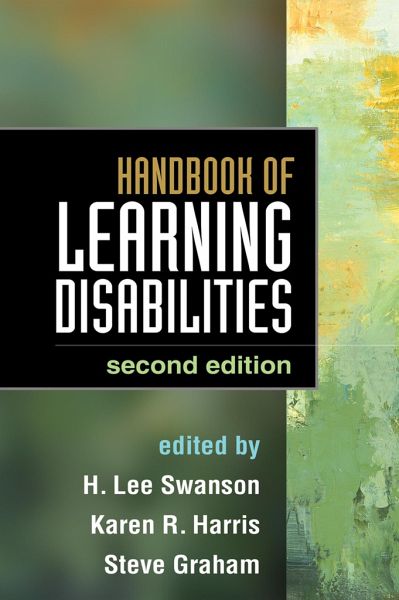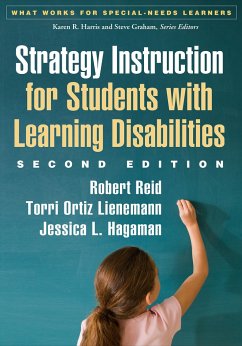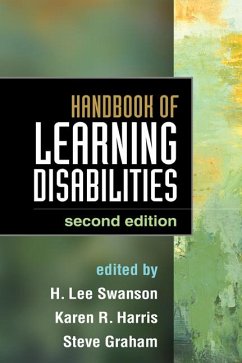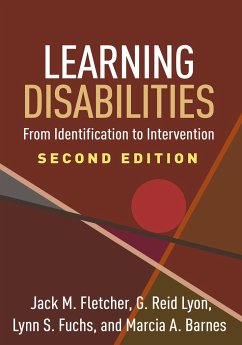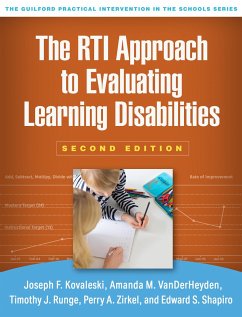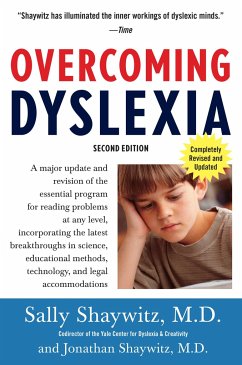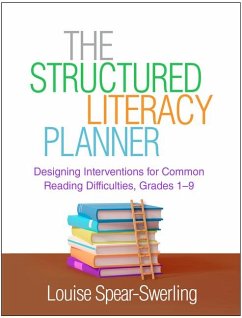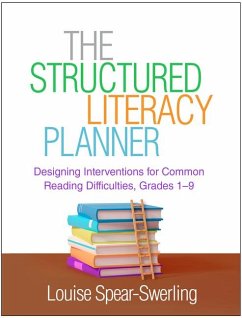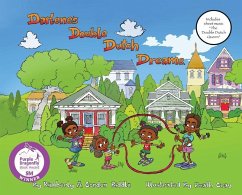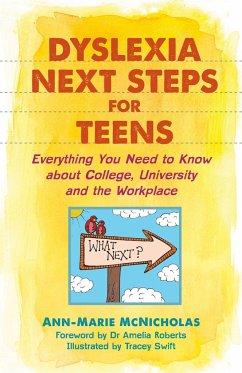Broschiertes Buch
Handbook of Learning Disabilities
Versandkostenfrei!
Versandfertig in über 4 Wochen

PAYBACK Punkte
35 °P sammeln!




Widely regarded as the standard reference in the field, this comprehensive handbook presents state-of-the-art knowledge about the nature and classification of learning disabilities (LD), their causes, and how individuals with these difficulties can be identified and helped to succeed.
H. Lee Swanson, PhD, is Distinguished Professor of Educational Psychology/Special Education and holds an endowed chair at the University of California, Riverside. He is Editor-in-Chief of the Journal of Learning Disabilities and was the founding editor of Learning and Individual Differences. Widely published, Dr. Swanson has received research awards from the American Educational Research Association, the International Academy for Research in Learning Disabilities, and the Council for Learning Disabilities. His primary research interests are in the areas of intelligence, memory, mathematics, reading, and dynamic assessment as they apply to children with LD. Karen R. Harris, EdD, is Regents Professor Emeritus and the former Mary Emily Warner Endowed Professor of Education at Arizona State University, and a former general and special education teacher. Her research focuses on theoretically based interventions for the development of academic and self-regulation abilities among at-risk students and those with disabilities, as well as effective models of inservice teacher preparation for writing instruction for all students. She developed the Self-Regulated Strategy Development model of strategies instruction. The former editor of the Journal of Educational Psychology, Dr. Harris is coauthor or coeditor of several books and over 200 peer-reviewed publications. She is a recipient of the Distinguished Researcher Award for special education research from the American Educational Research Association and the Career Research Award from the International Council for Exceptional Children. She is President of Division 15 (Educational Psychology) of the American Psychological Association and has served as President of the Division for Research of the Council for Exceptional Children. Steve Graham, EdD, is the Warner Professor in the Division of Educational Leadership and Innovation at Mary Lou Fulton Teachers College, Arizona State University. He is also Research Professor in the Learning Science Institute at the Australian Catholic University in Brisbane. Dr. Graham is editor of the Journal of Educational Psychology. He has coedited several books, including Handbook of Writing Research, Second Edition; Handbook of Learning Disabilities, Second Edition; and Best Practices in Writing Instruction, Second Edition; and is the coauthor of three influential Carnegie Corporation reports: Writing Next, Writing to Read, and Informing Writing. Dr. Graham has received numerous awards, including the Career Research Award from the Council for Exceptional Children (CEC), the Kauffman-Hallahan Distinguished Researcher Award from the CEC Division of Research, the Samuel A. Kirk Award from the CEC Division of Learning Disabilities, the Distinguished Researcher Award from the special education interest group of the American Educational Research Association (AERA), and the Wiederholt Distinguished Lecturer Award from the Council of Learning Disabilities. He is a fellow of the AERA and the International Academy for Research in Learning Disabilities.
Produktdetails
- Verlag: Guilford Publications
- 2 ed
- Seitenzahl: 716
- Erscheinungstermin: 13. August 2014
- Englisch
- Abmessung: 256mm x 179mm x 40mm
- Gewicht: 1254g
- ISBN-13: 9781462518685
- ISBN-10: 1462518680
- Artikelnr.: 40905115
Herstellerkennzeichnung
Libri GmbH
Europaallee 1
36244 Bad Hersfeld
gpsr@libri.de
Für dieses Produkt wurde noch keine Bewertung abgegeben. Wir würden uns sehr freuen, wenn du die erste Bewertung schreibst!
Eine Bewertung schreiben
Eine Bewertung schreiben
Andere Kunden interessierten sich für



